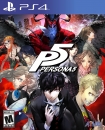Shadow1980 said:
Back in the day the PS1 was barely on my radar. I knew of it, but in 1995/96 I was more interested in what Nintendo had to offer. Then Final Fantasy VII happened. But even then, the PS1 was to me "that system with Final Fantasy on it." The system itself and its larger library didn't do anything for me. The games looked hideous even back then, and while the N64's graphics weren't leagues better, they were still easier on the eyes than the jagged pixelated affairs on the PS1 (seriously, I was for the most part not impressed by the transition from 2D to 3D games). Even gameplay-wise, Nintendo & Rare seemed to be about the only ones who could make video games that played well in 3D. The PS1 did have a small handful of other games that I did enjoy, but the N64 had by far the better library, with better quality making up for the lack of quantity.
And the PS1 owes its success to third parties, especially Square Soft, as FFVII was the first big killer app for the system, and was the system-seller that generation in the U.S. You know what, scratch that. It owes it success to Nintendo, whose mistakes are what allowed the PS1 to succeed at all. Had the N64 been CD-based, the PS1 would likely never have become the massive success that it did. Third parties by and large didn't care much for the expensive, low-capacity cartridges of the N64, and that's why most of them decided to throw most of their support behind the PS1. And good thing for Sony, because they had precious little first-party works of their own.
TL;DR, the PlayStation succeeded because Nintendo screwed up, and, aside from a few gems, most of its games, and most notable games in general that generation, were not very good and have aged poorly because most devs had no idea how to make good use of those 3D worlds they could now create.
|
Back in the day, gaming in general was off my radar. The NES had been a fun way to waste some time after school but rarely more than that. Then the SNES came along and pretty much lost me. Final Fantasy VI was the one real shining light. I considered myself a Nintendo fan but they weren't holding my interest at all. Everything just felt like more of the same, more of the same, more of the same. When the PS1 came along, I bought it solely for FFVII, because of FFVI. What happened then was a revelation for me. Suddenly games and game characters were interesting and creative, not just jumping and punching with a random, uninspired story intended to simply tie levels together, or souless, goofy characters with no personality.
It's easy to say, "oh, Sony got lucky," but the way I see it, Nintendo had their shots. Two consoles to one but it took only a brief spell with the PS1 and I never looked back. I never even considered getting the Nintendo console at the time. It was off my radar, my sonar, and even my satellite network was getting nothing.
Is a lot of that nostalgia talking? Absolutely. But it's nostalgia generated by the simple fact that I liked the games on the PS1 more than those of the NES and SNES combined, and by a country mile.
The simple truth is that Nintendo just didn't make a mistake. It was Nintendo being Nintendo and they would have made the same mistake 10 times out of 10. If it hadn't been that mistake then it would have been another mistake. Nintendo thought they had the right to dictate the terms of gaming to consumers, developers, and publishers--just like Microsoft did with the original Xbox One. I think a lot of people liked the vibe that Playstation brought to the table. I know I did.






















































